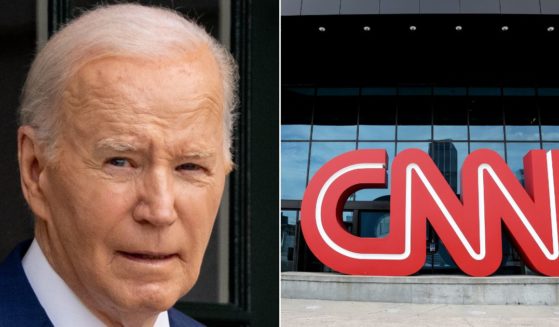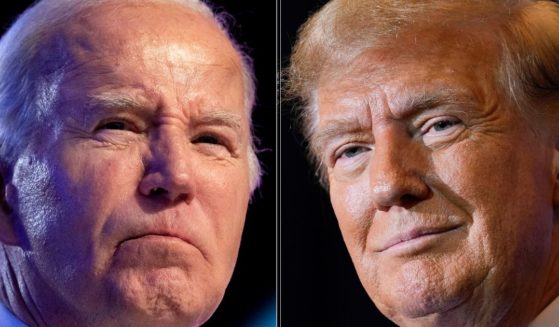The Latest: Merkel sets out German position on Brexit delay
BRUSSELS (AP) — The Latest on Brexit (all times local):
1 a.m.
Dutch Prime Minister Mark Rutte says the United Kingdom now could walk out without a deal on April 12, but he expects it to seek more time under any circumstance.
Rutte said that “they can say, in theory, that on 12th of April we are getting out. But it can be something else,” he said. The EU has asked the United Kingdom that if its parliament rejects the withdrawal deal next week it should “indicate a way forward” by April 12.
Rutte said he did not expect a departure that day already. “They should value time to make it a good departure in case of a no-deal.”
He said a legal end-day to leave would be the end of June, just ahead of the first plenary meeting at the start of July. He said an overlap of still being member at the time of the first meeting of the new parliament while not having contested the elections would create all kinds of legal problems.
___
12:45 a.m.
French president Emmanuel Macron says the European Council’s double offer to Britain is protecting the bloc’s interests and will allow it to “continue working properly.”
Macron said the onus is now on Britain to take its responsibilities after the European Council “lifted uncertainties with clear rules.”
Macron said “we gave some options and delivered an answer, but with our limits and conditions.”
Macron said the new delay should guarantee that the EU won’t face a “crisis situation” next week in case British lawmakers again reject Theresa May’s divorce deal.
Macron would not speculate into whether he believes the British Prime minister can win a third vote on the deal but said “he wants to try and help Theresa May as much as possible.”
___
12:20 a.m.
British Prime Minister Theresa May says she “will make every effort” to ensure that delayed Brexit happens with a deal in place.
But she also signaled that if Parliament rejects her deal, she prefers leaving without agreement to a long Brexit delay.
May has accepted the EU’s offer of a delay until May 22 if her deal is approved by Parliament. If lawmakers reject it for a third time, the EU says Britain must propose a new plan by April 12.
That would mean a long delay or crashing out without a deal.
May says she does not support a long delay because that would mean Britain participating in elections for the European Parliament.
___
11:55 p.m.
European Council President Donald Tusk says he has spoken to British Prime Minister Theresa May and she has agreed to the bloc’s plan for a Brexit delay.
Tusk says the deal means “the cliff-edge date” on which Britain would tumble out of the bloc without agreement has been delayed.
The U.K. is due to leave the bloc on March 29, but its Parliament is deadlocked over a Brexit deal.
The bloc is offering a delay until May 22 if Parliament passes the deal. Otherwise Britain has until April 12 to come up with a new plan to present to the EU.
___
11:45 p.m.
The European Union is offering Britain a choice of short delays to its departure from the European Union, postponing Brexit, due March 29, until at least mid-April.
The bloc says it will extend the deadline until May 22 if Britain’s Parliament approves Prime Minister Theresa May’s Brexit deal next week.
If it is rejected, the U.K has until April 12 to “indicate a way forward.”
There has been no immediate response from May, who had been seeking a delay until June 30.
___
11:25 p.m.
European Council President Donald Tusk says the bloc has unanimously agreed on a response to Britain’s request for a delay to Brexit, and Austria’s leader says the bloc is offering an extension.
Tusk says he will now meet Prime Minister Theresa May after the decision of the 27 other EU leaders.
May is seeking a three-month delay to Britain’s departure. The EU has been considering shorter timeframes.
Austrian Chancellor Sebastian Kurz says the bloc’s decision averts the chance of a no-deal Brexit on March 29, the date scheduled for Britain’s departure.
He did not say how much time the bloc was offering.
___
8:40 p.m.
European leaders are haggling over how long to postpone Brexit if they grant British Prime Minister Theresa May’s request for an extension to the U.K’s due date for pulling out of the EU.
The leaders of the 27 countries remaining in the EU on Thursday initially considered May 22 as the new date, but the change didn’t receive the needed unanimous approval.
An EU official, who did not want to be identified since the negotiations were ongoing, said support was crystalizing around delaying Brexit until May 7 but including a reference to April 11 in case the U.K. wants to take part in the May 23-26 elections for the EU parliament.
The official says “discussions are very intense.”
The meeting in Brussels was stopped for a short break and is expected to continue over dinner.
—By Raf Casert
___
8:05 p.m.
Britain’s armed forces have set up a command post in a bombproof bunker beneath the building that houses U.K. Ministry of Defense to coordinate plans for the military’s role in a possible no-deal Brexit.
Officials said Thursday that Operation Redfold builds on earlier military planning designed to minimize more than defense-related disruptions if Britain leaves the European Union without a withdrawal deal in place.
There are concerns that a no-deal Brexit could cripple traffic at border crossings and ports, as well as lead to shortages of food, medical supplies and other products now imported from elsewhere in the EU.
The Defense Ministry said in a statement Thursday that it “committed to holding 3,500 troops at readiness to aid contingency plans” and other government agencies could request help “if they feel defense capability could contribute to their no-deal planning.”
Britain is scheduled to withdrawal from the EU on March 29. The leaders of the other 27 countries are considering the British government’s request to postpone Brexit until June 30.
___
7:05 p.m.
An independent British legislator who favors staying in the European Union says she cannot return to her home district this weekend because of credible death threats against her.
Anna Soubry said she is facing “very, very serious death threats” and had been advised by a senior police officer that she should be concerned for her safety. She says Thursday that “I’m not able to go home this weekend, I am not safe.”
Tensions have been running high as Britain’s planned exit from the European Union nears. The British government has asked the EU for an extension for Brexit, which as of now takes place on March 29.
Soubry recently left the Conservative Party and joined the Independent Group. She says the fact that her home address is widely known is a further deterrent to returning to her district in Nottinghamshire, 140 miles (225 kilometers) north of London.
___
6:00 p.m.
Leaders of European Union countries are considering whether to give the U.K. an extension that would postpone Brexit until May 22.
Two sources told The Associated Press on Thursday that the leaders of the 27 remaining EU members are reviewing a draft proposal with that date right before May 23-26 EU parliament elections.
Britain’s departure is set to take effect on March 29. British Prime Minister Theresa May has requested an extension until June 30.
May has said she does not want the U.K. to take part in the European Parliament elections. If Brexit is pushed back no later than May 22, the EU would avoid potential problems from the U.K. not participating in the elections while it still technically was an EU member.
—By Raf Casert
___
5:20 p.m.
Poland’s prime minister has backed a delay in Britain’s departure from the European Union without conditions.
Prime Minister Mateusz Morawiecki spoke to reporters before EU summit in Brussels on Thursday. EU leaders are pondering Britain’s request for a postponement of Brexit from on March 29 until June 30, because of Britain’s political impasse over the divorce deal from the EU.
According to Polish media, Morawiecki spoke in favor of granting “our friends” a few more months. He said he spoke to British Prime Minister Theresa May on Thursday and described the situation in the British parliament as “very difficult.”
There are hundreds of thousands of Poles living now in Britain. The Polish government in Warsaw says it wants Britain to remain as close to the EU as possible after Brexit.
___
4:20 p.m.
The president of the European Union parliament doesn’t want Brexit postponed beyond April 18 in case the U.K. needs to take part in May’s EU elections.
European Parliament President Antonio Tajani said Thursday: “We want the extension to be as brief as possible and no later than April 18,” the last official business day for the current legislature.
Tajani said: “Any choice beyond the European lections would cause serious harm and problems.”
British Prime Minister Theresa May has asked the EU to push back Brexit day, now set for March 29, until June 30.
The European Parliament has no say on an extension but needs to approve the final divorce deal between the EU and the U.K.
___
3:55 p.m.
The speaker of Britain’s House of Commons is defending lawmakers after Prime Minister Theresa May blamed them for the impasse over Brexit.
Members of Parliament expressed outrage Thursday after May, in an address to the nation the night before, said the country would not be leaving the EU with a withdrawal deal next week because the lawmakers failed to approve the deal her government negotiated.
Lawmakers say her comments inflamed already heated tensions over Brexit.
Diana Johnson of the opposition Labour Party said: “In recent weeks, I have been accused of being a traitor.” She asked Commons leader Andrea Leadsom to reject May’s remarks.
House of Commons Speaker John Bercow intervened, saying, “None of you is a traitor. All of you are doing your best. This should not be, and I’m sure will not prove to be, a matter of any controversy whatsoever.”
___
3:40 p.m.
Austria’s leader is backing a delay to Britain’s exit from the European Union but is keen to ensure that Britain doesn’t participate in the May 23-26 European Parliament elections.
Chancellor Sebastian Kurz spoke as EU leaders prepared to decide whether to grant Britain’s request for a short delay to Brexit. Britain is scheduled to leave the EU on March 29 but Prime Minister Theresa May has asked that be delayed until June 30.
Kurz said he expects conditional approval “but what is decisive for me is that we ensure in this delay that Britain does not take part in the European Parliament elections. Anything else would de facto be absurd.”
Kurz suggested that leaders shouldn’t be distracted by frustration over Britain’s political gridlock. He says “what we need is a functioning solution” to Brexit.
___
3:20 p.m.
French President Emmanuel Macron is closing the door to a possible long delay to Britain’s withdrawal from the European Union.
Arriving in Brussels on Thursday for an EU summit, Macron said “there won’t be any delay to renegotiate, and there won’t be any delay if there is not a clear majority on the future relationship.”
The Brexit target date is March 29, but British Prime Minister Theresa May is looking for an extension until June 30.
Macron said a long delay would only be justified if there was a “deep political change” in the UK. He did not elaborate.
Macron stressed it’s now the British Parliament’s responsibility to make sure that Britain does not crash out of the bloc without a divorce deal. He says “this is it.”
__
3:10 p.m.
EU Commission President Jean-Claude Juncker says if UK parliament rejects the British government’s Brexit divorce deal again next week, the EU leaders would have to be called into a new summit next week.
Juncker spoke as he arrived for Thursday’s summit in Brussels.
He says “I didn’t know my patience could last that long” — about the drawn out Brexit process which started with the June 2016 referendum in which the British narrowly decided to leave the EU.
The Brexit target date is March 29, but British Prime Minister Theresa May said that she was looking for an extension until June 30. She hopes the House of Commons will pass the Brexit deal on a third attempt next week.
___
3 p.m.
Luxembourg’s prime minister says if British lawmakers don’t change course and approve Prime Minister Theresa May’s divorce deal with the European Union, the country is heading in the direction of a no-deal departure from the bloc.
Xavier Bettel says Britain has been led to the brink by “people who lied” and said Brexit would be easy.
He said “if next week you are not able to find agreement in the House of Commons we are going in the direction of no deal.”
Bettel said he did not know whether British lawmakers would finally approve the Brexit deal, which they have already rejected twice. He said “I have the feeling sometimes that I am in the waiting room waiting for Godot and Godot is never coming.”
___
2:45 p.m.
German Chancellor Angela Merkel says the European Union must proceed “carefully” in dealing with Brexit and work “until the last moment” to secure an orderly British withdrawal.
Merkel said as she arrived at an EU summit Thursday that leaders have to bear in mind the possibility that the British Parliament won’t approve the twice-rejected withdrawal deal — which the EU says is a condition for granting a short delay to Britain’s March 29 withdrawal. She said “we will have to decide day by day even after this European Council what more we can do, and that depends not just on us alone but of course also on the British side.”
She stressed that “the withdrawal agreement is well-negotiated, and so our room for maneuver is very much limited, but we have a good will to find a solution.”
Merkel said that “everyone must be and is aware that this is an event of historic significance, and so we must proceed carefully.”
___
2:20 p.m.
One of Britain’s biggest business lobbies has joined with its main grouping of labor unions in urging Prime Minister Theresa May to change her approach to the pending divorce from the European Union.
CBI Director-General Carolyn Fairbairn and TUC General Secretary Frances O’Grady on Thursday requested an urgent meeting to discuss their concerns.
The pair, who represent millions of workers and thousands of businesses, say the “country is facing a national emergency,” as the risk that of Brexit without a deal increases.
They say the biggest issue not to leave the EU without a deal, that there must be a time extension, and that it cannot simply be a choice between leaving with a deal or without one.
With just over a week before the country is set to end more than 40 years of frictionless trade, the letter says, “firms and communities across the U.K. are not ready for this outcome. The shock to our economy would be felt by generations to come.”
___
2:15 p.m.
Dutch Prime Minister Mark Rutte says that the U.K. Parliament must approve the Brexit deal “lock, stock and barrel” as it is now on the table before it can be granted a technical extension to the March 29 divorce deal.
Rutte said that the 27 nations would “in principle” agree to a short extension if it was sure the House of Commons would finally back the package next month. He excluded that any more negotiations could be held with the UK on changing any part of that package.
“Let’s make sure the U.K. parliament says yes. In that case, if they take everything lock, stock and barrel, then we are ready to seriously look at a postponement because you technically need time to put it into law,” he said.
___
2:05 p.m.
British Prime Minister Theresa May has refused to rule out taking the U.K. out of the European Union without a divorce deal, saying the most important thing is to carry through with Brexit.
Arriving Thursday for an EU summit in Brussels, May said “what matters is that we recognize that Brexit is the decision of the British people. We need to deliver on that.”
She said “I sincerely hope that will be with a negotiated deal.”
Britain is due to leave the EU on March 29 unless the bloc grants an extension requested by the U.K. government. EU leaders have signaled they are likely to agree if May can get her twice-rejected Brexit divorce deal approved by Parliament.
Businesses and economists say a no-deal Brexit would cause huge disruptions to the economies of both Britain and the EU.
___
1:55 p.m.
British opposition leader Jeremy Corbyn says he is focused on finding a majority in Parliament to pass a Brexit divorce deal.
Corbyn is in Brussels for meetings with EU officials and chief negotiator Michel Barnier, the same day that British Prime Minister Theresa May attends a summit for leaders of the 28-nation bloc.
With Brexit eight days away on March 29, May is seeking a delay until June 30. The EU says that is conditional on getting a deal approved by Parliament. Corbyn says there is no majority for May’s Brexit deal, which has been rejected by British lawmakers twice.
He is trying to build a majority in Parliament for Labour’s alternative, which calls for a close post-Brexit relationship between Britain and the EU. Corbyn said “we can constrict a majority that will prevent crashing out, and all the chaos that will result from crashing out.”
___
1:40 p.m.
The Lithuanian president says British Prime Minister Theresa May will likely get a limited extension to the March 29 Brexit deadline but perhaps not as long as her requested date of June 30.
Lithuanian President Dalia Grybauskaite says “we will be supportive toward the prime minister. In the way we can, we will grant (an extension) but the exact timing is still under discussion.”
She said the key problem was the May 23-26 European Union elections. Britain so far has no plans to take part in the vote because it hopes to leave the bloc before the new parliament is in session.
Still Grybauskaite says “we will do everything from our side” to help make Britain’s departure go smoothly.
___
1:30 p.m.
The Bank of England says firms have ratcheted up preparations for a “no-deal” Brexit over the past couple of months.
The minutes of the bank’s latest policy meeting show that a special survey indicates that around 80 percent of companies “judged themselves ready” for a disorderly Brexit in which the country crashes out of the European Union with no deal and with no transition to new trading arrangements with the EU. That’s up from around 50 percent in an equivalent survey conducted in January.
However, many of those companies also reported that “there were limits to the degree of readiness that was feasible in the face of the range of possible outcomes in that scenario.”
As things stand, Britain is heading for a “no-deal” Brexit on March 29 if Prime Minister Theresa May fails to win parliamentary support for her withdrawal agreement with the EU. That would see the return of tariffs and border checks.
___
1:25 p.m.
Irish Prime Minister Leo Varadkar says that among the 27 European Union leaders having to decide on the U.K. request to push back the Brexit deadline “there is an openness to an extension across the board.”
Talking to reporters before the EU summit, Varadkar said that “Nobody wants no-deal here. Ireland doesn’t want no-deal, Europe doesn’t want no-deal.” May’s request to move the deadline to June 30 needs the unanimous approval of the 27 other EU nations. If not, Britain would be heading to a chaotic cliff-edge departure on March 29.
EU summit host Donald Tusk had said chances for a short extension looked good on condition that the U.K. parliament would approve the withdrawal deal next week, just days ahead of the original cutoff date.
___
1:10 p.m.
The Bank of England has warned that Brexit uncertainties continue to weigh on economic confidence in the U.K. and on short-term economic activity, notably on business investment.
In a statement alongside the decision to keep the bank’s main interest rate on hold at 0.75 percent, the nine rate-setters said shifting expectations about Britain’s departure from the European Union have also “continued to generate volatility in U.K. asset prices, particularly the (pound) sterling exchange rate.”
Though they noted that employment growth has been strong, they said surveys suggest that “the outlook has softened.”
___
12:20 p.m.
London commuters have reacted with a certain amount of dismay to the continuing Brexit deadlock and a speech by Prime Minister Theresa May in which she blamed Parliament for the impasse.
Commuter Stephanie Marshall says the will of the people is being ignored.
She says May has shown an “appalling lack of leadership,” saying she can’t understand how the prime minister couldn’t listen to the people time and time again.
Marshall added: “It just defies comprehension to the point where I don’t even want to go there.”
Student Joseph Graham-Bradley called May’s speech “quite shocking.”
He said that “I just thought the way she was trying to pit Parliament against the people could be quite destructive in the sense it could inflame quite a few opinions and I think it could lead to quite potentially damaging consequences.”
___
12:10 p.m.
French President Emmanuel Macron will leave for Brussels earlier than expected to meet with British Prime Minister Theresa May before a crucial Brexit summit.
The French presidency says Macron will have bilateral discussions with May as European leaders are gathering for the summit at which they could grant Britain a short extension to its departure from the bloc.
The meeting with May wasn’t initially on Macron’s Brussels agenda.
According to the Elysee, Macron will also hold one-on-one talks with German Chancellor Angela Merkel, Spanish Prime Minister Pedro Sanchez and Dutch Prime Minister Mark Rutte on Thursday. He will meet with Italian Premier Giuseppe Conte on Friday.
___
12 p.m.
A petition asking Britain to remain in the European Union has caused a government website that hosts petitions to crash.
About 600,000 people backed a call to revoke Article 50, the mechanism that triggered Britain’s departure from the European Union, before the site crashed. That surpasses the 100,000 threshold needed for the petition to be debated in Parliament.
Actors Hugh Grant and Jennifer Saunders, author Caitlin Moran and ex-Labour press chief Alastair Campbell urged their social media followers to sign the petition.
Five hashtags related to remaining in the European Union were trending on Twitter on Thursday. They included “Revoke Article 50,” and #NotOnMySide, a reference to May’s speech Wednesday in which she told the public that she was “on your side” in her efforts to carry out the result of the 2016 referendum.
___
11:35 a.m.
British Prime Minister Theresa May is facing a backlash from lawmakers who have taken umbrage with her decision to blame lawmakers for the country’s inability to forge a consensus on a divorce deal with the European Union.
May told a frustrated public in a televised address to the nation Wednesday that she was “on your side” in efforts to carry out the results of the 2016 referendum to leave the EU.
But many lawmakers — whom she needs to win over to get her deal passed — were infuriated Thursday.
Anna Soubry, of the breakaway Independent Group, described it as the “most dishonest and divisive statement from any Prime Minister.” Labour’s David Lammy called the speech “sinister,2 while Conservative Sam Gyimah tweeted it was a “low blow.”
___
10:55 a.m.
Slovakia Prime Minister Peter Pellegrini says his country is ready to approve only a short delay to Brexit.
Pellegrini says he would agree only to a postponement until the European Parliament elections scheduled for May 23-26 but not until June 30 as British Prime Minister Theresa May has requested.
Speaking Thursday to lawmakers in Parliament before his trip to Brussels, Pellegrini was critical of Britain’s position.
He says: “They vote on something every other day but it’s leading nowhere. I don’t have an idea about what Britain really wants to do.”
Pellegrini says he is against changes to an already agreed deal with Britain on Brexit that Britain’s Parliament rejected twice. He says he would only consider possible changes to a political declaration that accompanies the deal.
___
10 a.m.
German Chancellor Angela Merkel says she will work “until the last hour” to try and ensure that Britain doesn’t leave the European Union without a deal.
Merkel spoke to German lawmakers before a summit Thursday at which Britain will seek to delay its departure from March 29 to June 30. Britain is currently scheduled to leave next week, with or without a deal.
Merkel said that Germany has put “the most important emergency measures” in place to deal with a no-deal Brexit. She added: “we will, despite these measures we have taken, work until the last day — I will say until the last hour — to ensure that this emergency planning doesn’t come into effect.” She said “we will do everything in the remaining, admittedly few, days to achieve an orderly, joint solution.”
___
9:50 a.m.
Lithuania’s president has said before a European Union summit in Brussels that she believes the bloc will agree to extend the Brexit deadline.
Dalia Grybauskaite says the EU “will certainly be inclined to help (British Prime Minister Theresa May) to talk to the U.K. parliament.”
Grybauskaite told Lithuania’s LRT Radio that “we will definitely approve (an extension),” according to the Baltic News Agency, the region’s main news service. Lithuania became an EU member in 2004.
May is heading to the summit on Thursday, a day after requesting an extension to the Brexit deadline until June 30. She will try to persuade EU leaders to delay Brexit by up to three months, with her plans to leave the bloc in chaos just eight days before Britain’s scheduled departure.
___
9:30 a.m.
German Chancellor Angela Merkel says European Union leaders could approve a short delay to Brexit in principle so long as Britain’s Parliament passes a twice-rejected withdrawal deal next week. She says that if that doesn’t happen, another EU summit might be needed.
British Prime Minister Theresa May is seeking EU approval for delaying Brexit from March 29 to June 30 at a summit starting Thursday. That request is complicated by European Parliament elections May 23-26 that Britain doesn’t want to participate in.
Merkel told German lawmakers that “we can comply in principle with this request if we were to have a positive vote next week on the withdrawal documents in the British Parliament,” but the EU must take care that the legitimacy of the European elections is ensured.
She added that, if the withdrawal deal isn’t passed next week, “we will keep open whether there has to be another meeting of the European Council before the withdrawal date.”
___
8:05 a.m.
Prime Minister Theresa May is trying to persuade European Union leaders to delay Brexit by up to three months, just eight days before Britain is scheduled to leave the bloc.
May will meet the 27 national other EU leaders in Brussels on Thursday, a day after she requested an extension until June 30.
European Council chief Donald Tusk says a short delay may be possible, but only if Britain’s Parliament approves May’s divorce deal with the bloc before the scheduled March 29 departure date.
U.K. lawmakers have already rejected the deal twice. May says they face a “final choice” between her deal, a no-deal departure that could hammer the economy, and cancelling Brexit.
But May angered many legislators with a televised speech Wednesday blaming Parliament for the Brexit impasse.
The Western Journal has not reviewed this Associated Press story prior to publication. Therefore, it may contain editorial bias or may in some other way not meet our normal editorial standards. It is provided to our readers as a service from The Western Journal.
Truth and Accuracy
We are committed to truth and accuracy in all of our journalism. Read our editorial standards.

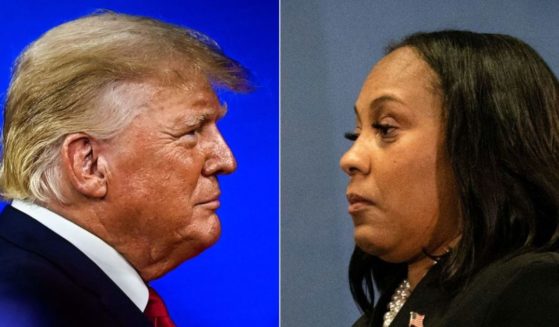
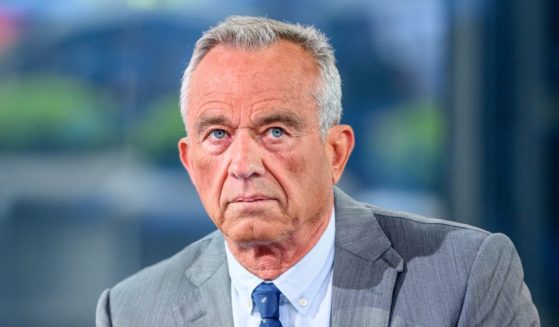
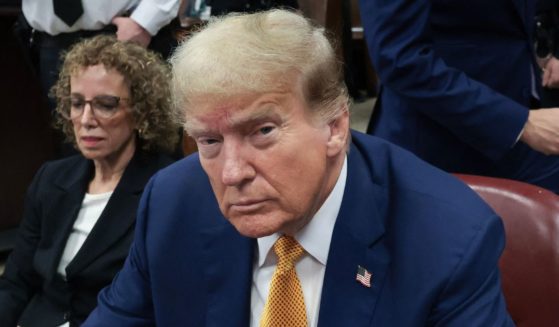



![A cousin said "God, Family, friends and fishing were what matter[ed] most" to Benny Bowers.](https://www.westernjournal.com/wp-content/uploads/2024/05/Hero-dad-drowns-559x327.jpg)

